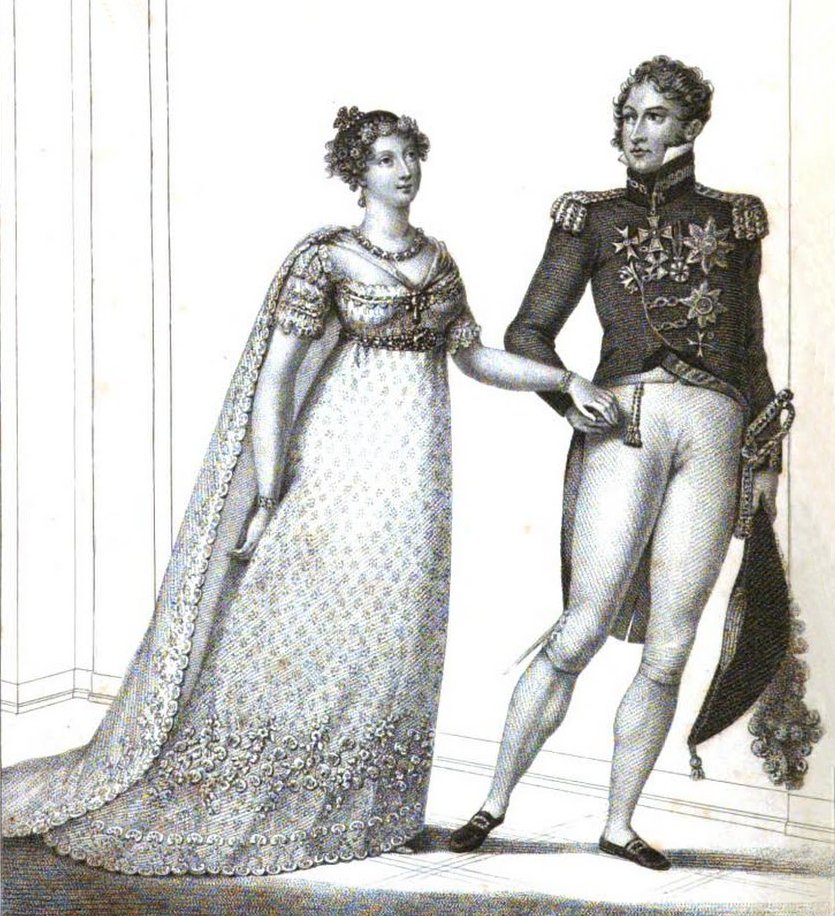EACH OF JANE AUSTEN'S NOVELS IS A LOVE STORY THAT ENDS IN MARRIAGE.
However, within each romance is a complex picture of Georgian life where marriages could not be made without reference to fortune.
For money
A gentleman was expected to marry to improve his position – to secure his fortune, further his political ambitions and increase his influence. A lady hoped to make a good match that would enable her to keep or improve upon her position in society and make her mistress over her own household.
That this desire for financial security was commonplace is highlighted in Persuasion, where Mrs Smith talks to Anne Elliot of her cousin Mr Elliot’s first marriage:
“When one lives in the world, a man or woman's marrying for money is too common to strike one as it ought … at that period I must own I saw nothing reprehensible in what Mr Elliot was doing. 'To do the best for himself,' passed as a duty."
Because she believed her young friend could do better for herself, Lady Russell persuaded Anne Elliot to break off her engagement to Captain Wentworth:
Anne Elliot, with all her claims of birth, beauty, and mind, to throw herself away at nineteen; involve herself at nineteen in an engagement with a young man, who had nothing but himself to recommend him, and no hopes of attaining affluence, but in the chances of a most uncertain profession, and no connexions to secure even his farther rise in the profession, would be, indeed, a throwing away, which she grieved to think of!
Georgian coins © Andrew Knowles
Discretion or avarice?
The line between making a good match and being judged a fortune hunter was not always clear cut. In Pride and Prejudice, Elizabeth Bennet discusses Mr Wickham with her aunt, Mrs Gardiner, and asks:
“Pray, my dear aunt, what is the difference in matrimonial affairs, between the mercenary and the prudent motive? Where does discretion end, and avarice begin? Last Christmas you were afraid of his marrying me, because it would be imprudent; and now, because he is trying to get a girl with only ten thousand pounds, you want to find out that he is mercenary.”
Austen was not alone in capturing this Georgian attitude to marriage in fiction. In Coelebs in Search of a Wife, Hannah More’s hero Charles says:
"… that family, fortune, and connections should have their full share in the business, I readily admit … but that it should ever form the chief, often the only ground of acceptance, has, I confess, lowered mankind in my esteem more completely than almost any other instance of ambition, avarice, or worldliness."
The pleasantest preservative from want
If she did not have her own income, a lady had very few options. Marriage was usually seen as preferable to becoming a governess or a poor relative dependent on the generosity of her family, often living in someone else’s house, with her time at someone else’s disposal.
In Persuasion, Anne Elliot had to endure her time being claimed by others without reference to her desires:
Mary, often a little unwell, and always thinking a great deal of her own complaints, and always in the habit of claiming Anne when anything was the matter, was indisposed; and foreseeing that she should not have a day's health all the autumn, entreated, or rather required her, for it was hardly entreaty, to come to Uppercross Cottage, and bear her company as long as she should want her, instead of going to Bath.
In Pride and Prejudice, Charlotte Lucas held the view that it was better to be married than remain a burden to her family or sink into poverty:
Mr. Collins, to be sure, was neither sensible nor agreeable; his society was irksome, and his attachment to her must be imaginary. But still he would be her husband. Without thinking highly either of men or matrimony, marriage had always been her object; it was the only provision for well-educated young women of small fortune, and however uncertain of giving happiness, must be their pleasantest preservative from want.
Bridal dress from Ackermann’s Repository (June 1816).
Marriage settlements
When she wed, a woman needed a marriage settlement to provide for her should she outlive her husband. This was necessary because a married woman in Georgian society had no separate legal identity from her husband. She could not own property, and on her marriage, all she possessed, and everything she earned, legally became the property of her husband. A marriage settlement might be a simple bond promising an amount of money, or property or money put into trust, providing an income for the couple, and then the wife after the husband’s death, with the property passing to the children after the wife’s death.
A widow could set up a trust before a second marriage to keep any fortune inherited from her first husband at her own disposal, preserving this money for any children of the first marriage. Actress Harriot Mellon placed the fortune left to her by her first husband, Thomas Coutts, in trust, before she married again. Consequently, she could bequeath Coutts’s fortune to one of his granddaughters, Angela Burdett Coutts, who became a great Victorian philanthropist.
The marriage of Princess Charlotte of Wales and Prince Leopold published in La Belle Assemblée (June 1816)
For love?
If money was so important to marriage, could Georgian couples marry for love? Jane Austen certainly thought so. In a letter to her sister Cassandra in 1808 she wrote:
I consider everybody as having a right to marry once in their lives for love, if they can. (27 December 1808)
In a letter to her niece Fanny written in 1814, she wrote:
I … entreat you not to commit yourself farther, and not to think of accepting him unless you really do like him. Anything is to be preferred or endured rather than marrying without affection; and if his deficiencies of manner, etc., etc., strike you more than all his good qualities, if you continue to think strongly of them, give him up at once. (18 November 1814)
Later she told Fanny:
Nothing can be compared to the misery of being bound without love,—bound to one, and preferring another. (30 November 1814)
Jane Austen evidently listened to her own advice. She never married, believing that the price of marrying without love for the sake of financial security was too high. She remained dependent on the generosity of her brothers, and devoted herself to her writing.
© Rachel Knowles - Regency historian and author of A Perfect Match and other titles. Visit her here.
References:
Austen, Jane, Persuasion (1813)
Austen, Jane, Pride and Prejudice (1817)
Austen, Jane, The Letters of Jane Austen selected from the compilation of her great nephew, Edward, Lord Bradbourne, edited by Sarah Woolsey (1892)
Dawes, Margaret and Selwyn, Nesta, Women who made money - women partners in British private banks 1752-1906 (2010)
More, Hannah, Coelebs in Search of a Wife (1808)
The Jane Austen Literacy Foundation works with the Jane Austen community and industry worldwide to raise funds to buy literacy resources for communities in need across the world. Reading and writing skills empower individuals to participate in society and achieve their dreams. Literacy gives a child pride and opens up a world of possibilities.
Image credits: A Receipt for Courtship (published London, 1805, by Laurie & Whittle)





